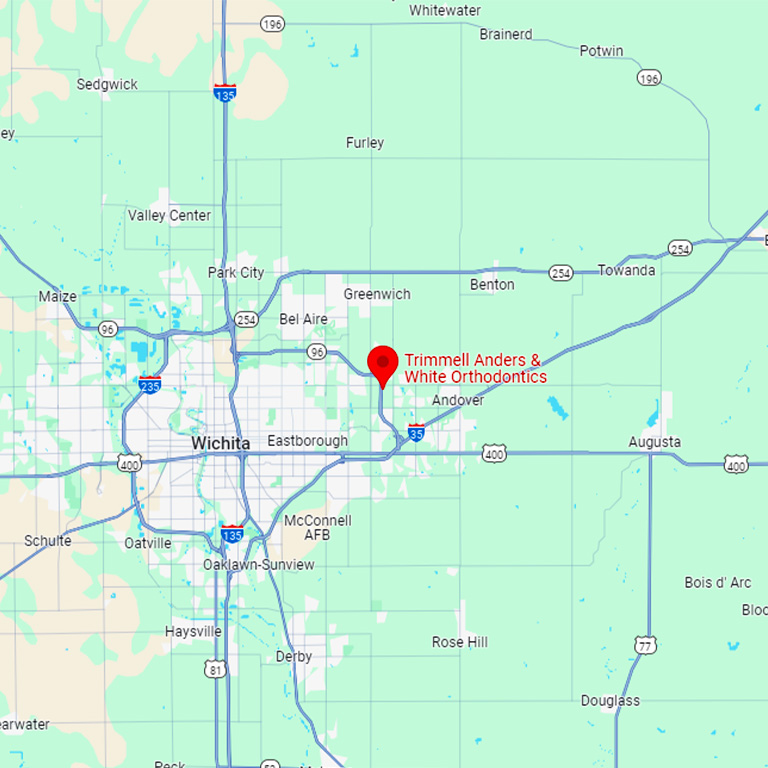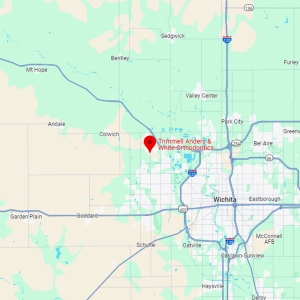TMJ Disorder

TMJ disorders are common, but they may not seem to fall under the category of “tooth problems.” Although we do receive many calls about aches and pains, you may be confused as to what a TMJ disorder may be.
If you are experiencing, or have experienced, jaw pain, popping sounds, or even shooting pains from your mouth into your head that cause migraines and headaches, you may be dealing with a TMJ (temporomandibular joint) disorder.
The experienced team at Trimmell, Anders, and White Orthodontics is proud to serve the local community with only the best services, including treating TMJ disorders so that you can enjoy a better quality of life.
Understanding What TMJ Disorders Are
We understand the frustration of not having a full range of motion for speaking, chewing, eating, and singing. We also understand the frustration of having to take time out of your busy schedule in order to deal with the pain or discomfort of having a TMJ disorder or injury.
Your TMJs are the joints that help to connect your jawbone to your skull. This is important, as these act like the “hinges,” which allow you to open and close your mouth. Having healthy TMJs can help you speak, eat, and chew more easily – giving you the full range of control that you need.
If the joints ever become misaligned, damaged, or inflamed (usually through blunt trauma, degenerative issues, or genetics), this can cause a variety of symptoms:
- Extreme jaw pain and tenderness
- Clicking or popping sounds in the jaw
- Difficulty chewing or opening your mouth wide
- Facial pain
- Headaches, including migraines
- Earaches
What Causes TMJ Disorders?
TMJ disorders can be caused by many different factors, which may not always be clear. If a TMJ disorder pops up suddenly, it can be from any different causes. If there is a medical history in your family concerning oral issues, you may have a genetic predisposition towards a TMJ disorder.
Here are some common causes of TMJ disorders:
- Teeth grinding or clenching ( medically known as bruxism)
- Chronic or acute stress and anxiety
- Injuries to the jaw or head
- Arthritis in the TMJ joint
When Home Remedies Just Aren’t Enough
If you are showing any signs and symptoms of a TMJ disorder, it’s always best to have it checked out – even if you feel you can handle it by yourself. It’s always best to take a look to see if there isn’t a more serious issue developing.
Some TMJ pain may be temporary due to inflammation. If this is the case, our orthodontic specialists can guide you on an appropriate diet, exercises, and pain-control until it resolves.
When TMJ pain is not temporary, more advanced treatments may be recommended. Some of these treatments include:
- Splints
- Joint Injections
- Botox
Regardless of what is causing the pain in your TMJ, we are with you every step of the way to address any concerns that you may have. Our goal is to help you achieve long-term relief from TMJ symptoms.
We understand TMJ pain can be debilitating. We strive to provide a comfortable and relaxing environment for your treatment.
Our team has the knowledge and experience, and we’ll work with you to develop a personalized treatment plan that addresses the underlying cause of your TMJ disorder, not just the symptoms.






